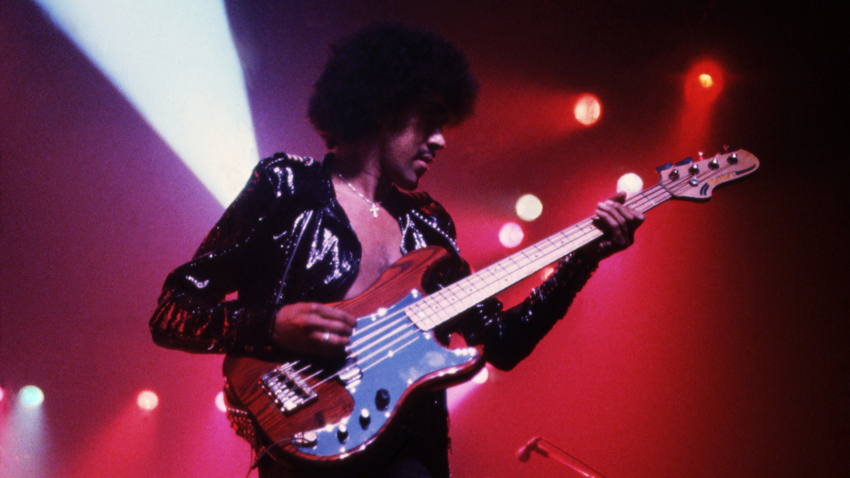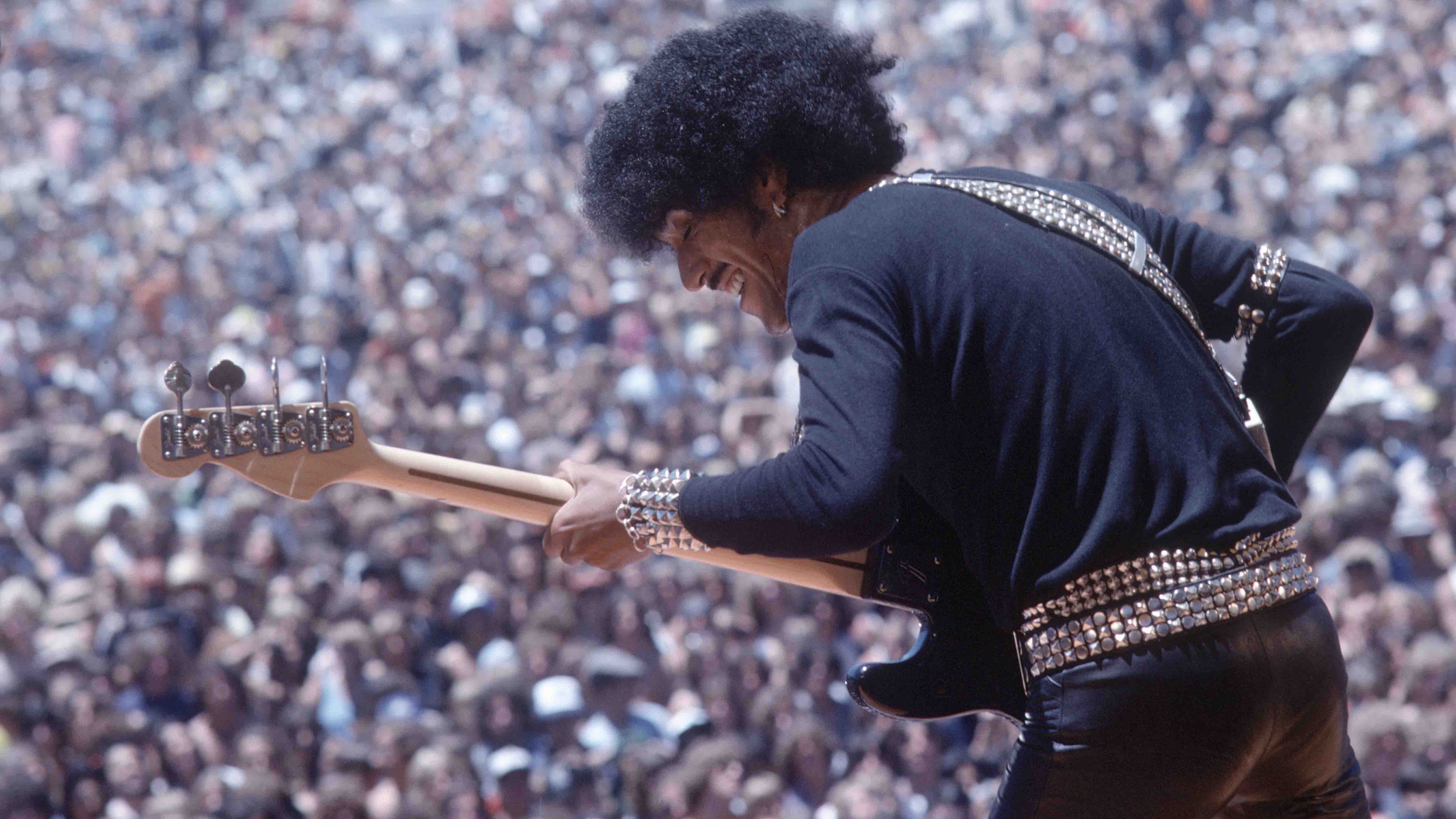
The titans of the bass kingdom are given all the love - your Maccas, your Jacos, your Jamersons - but there’s a whole world of talented bass players out there, beyond these oft-cited legends.
There are bassists by the dozen - some of them in huge bands, some of them prolific session guys - who have been doing the good work for too long in the shadows. It’s time we shone a light on these under-appreciated heroes, and gave them the props they so surely deserve.
And so here they are, 14 bass players who simply don’t get enough love...
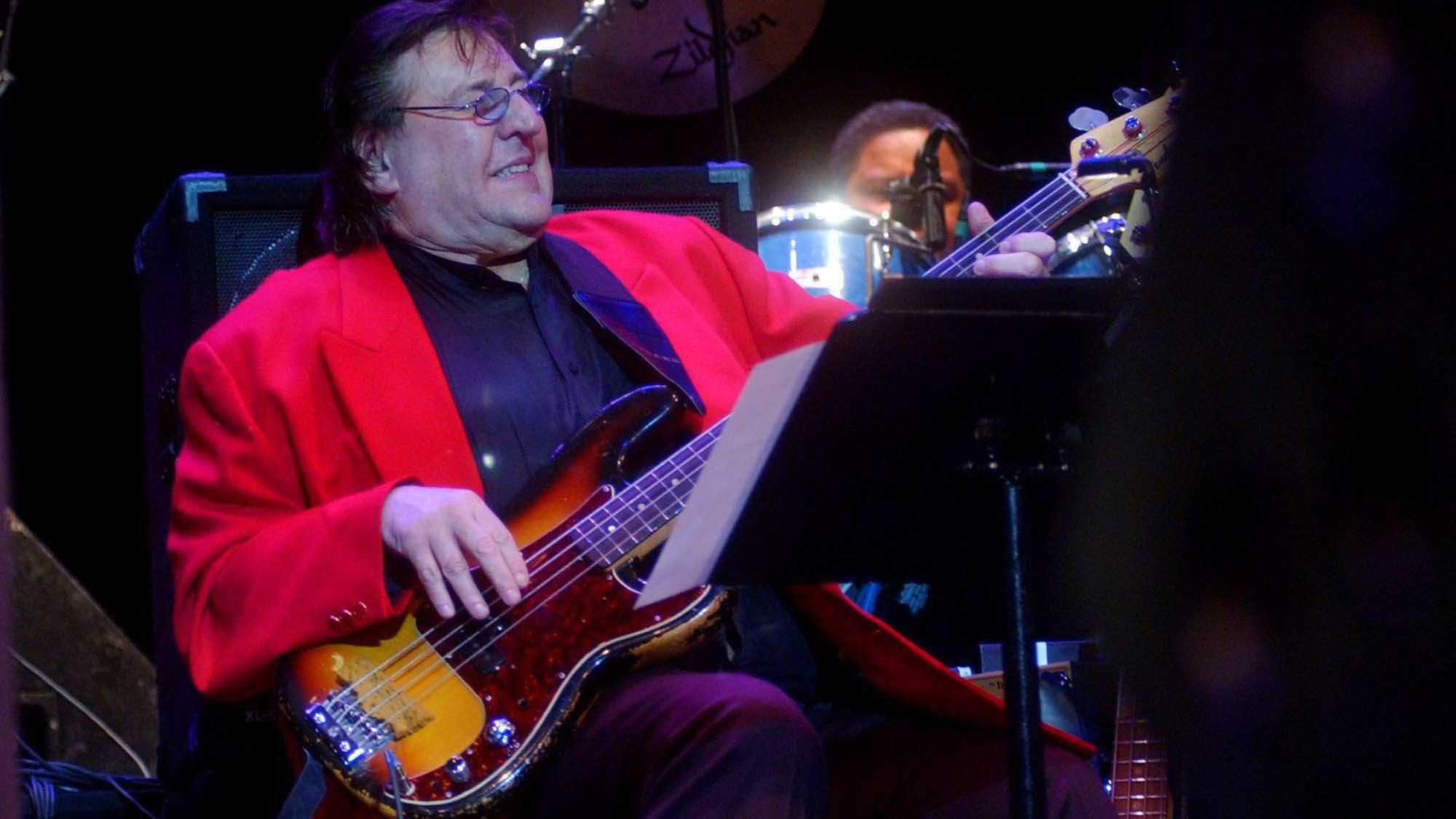
Bob Babbitt
Everybody knows James Jamerson, and rightly so. The man pioneered the Motown bass sound and was, without a doubt, a bone fide genius. But he wasn’t the only Motown bassist with chops.
Bob Babbitt, a Funk Brother from ’66 through to the early ’70s, had skills for miles and miles. Melodic and hard-driving, with a sound that lured a generation’s feet to a million dance floors, you can hear him on Signed, Sealed, Delivered, Tears Of A Clown, Band Of Gold and a ton more stone-cold classics.
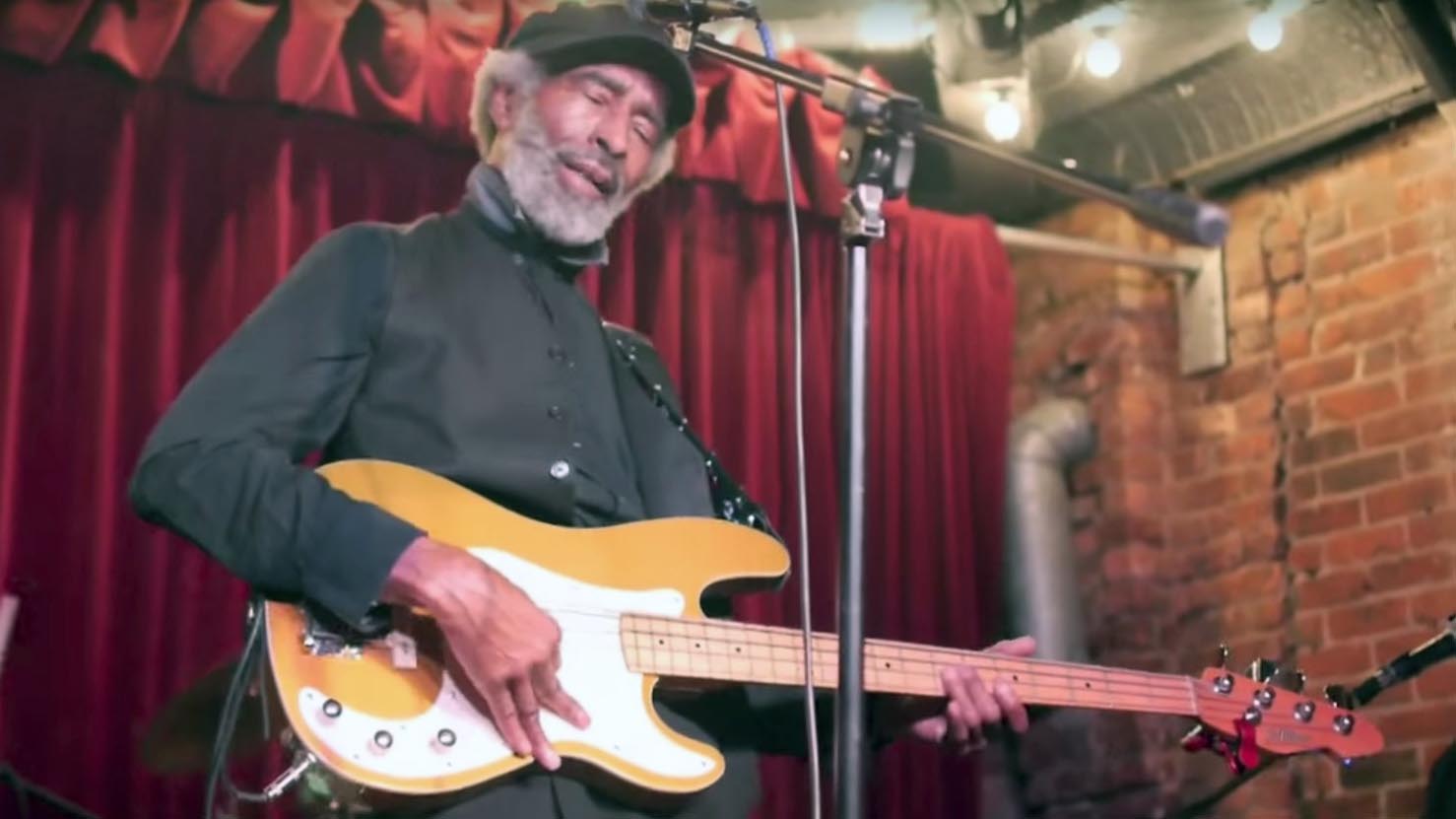
Fred Thomas
If you’re not familiar with The Payback, James Brown’s epic 1973 double album, go and listen to it immediately. We’ll wait here. Done? Excellent. Now you know why we are in awe of Fred Thomas, bassist to the godfather of soul from ’71, and who played on some of his biggest and best albums.
Everything he does sounds so easy - until you try to replicate it. He never played a note out of place and was funky as all hell. Yes, Fred Thomas embodies everything a truly great bass player needs: simplicity, patience and a great big bucket of groove.
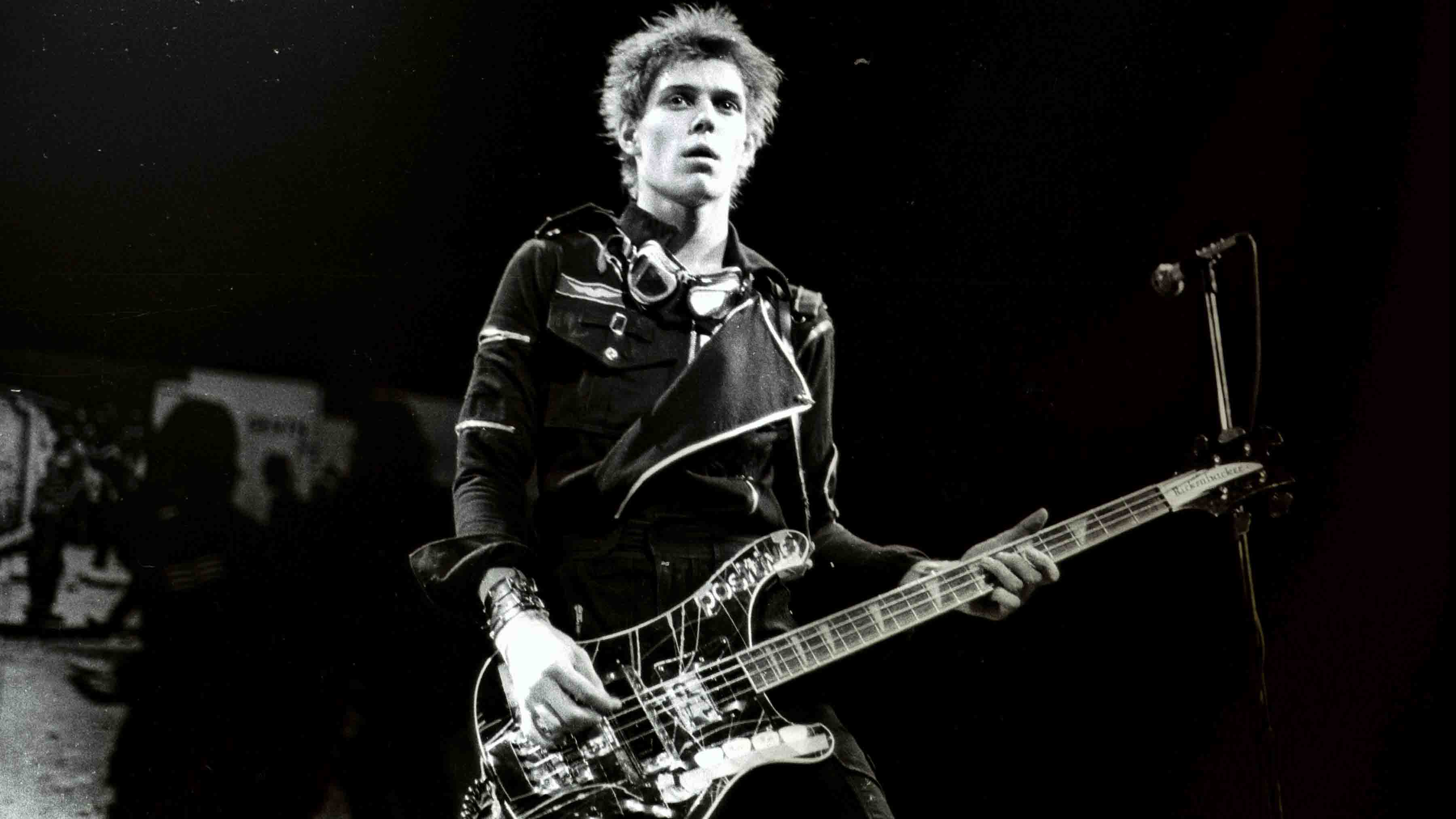
Paul Simonon
Considering he couldn’t play for toffee when he joined The Clash - to the extent he had to have frets labelled with notes - Paul Simonon went on to become the definitive punk bassist, in the definitive punk band.
Which is to say, while he started out snarling and battering his bass with the best of them, he ended up a versatile low-end mastermind, his playing full of shades of early rock and roll and roots reggae.
Guns Of Brixton is one of the all-time great basslines, and that’s just the tip of the Simo iceberg. Plus, he looked cooler than any other bass player before or since, and became an instant icon with the cover of London Calling.
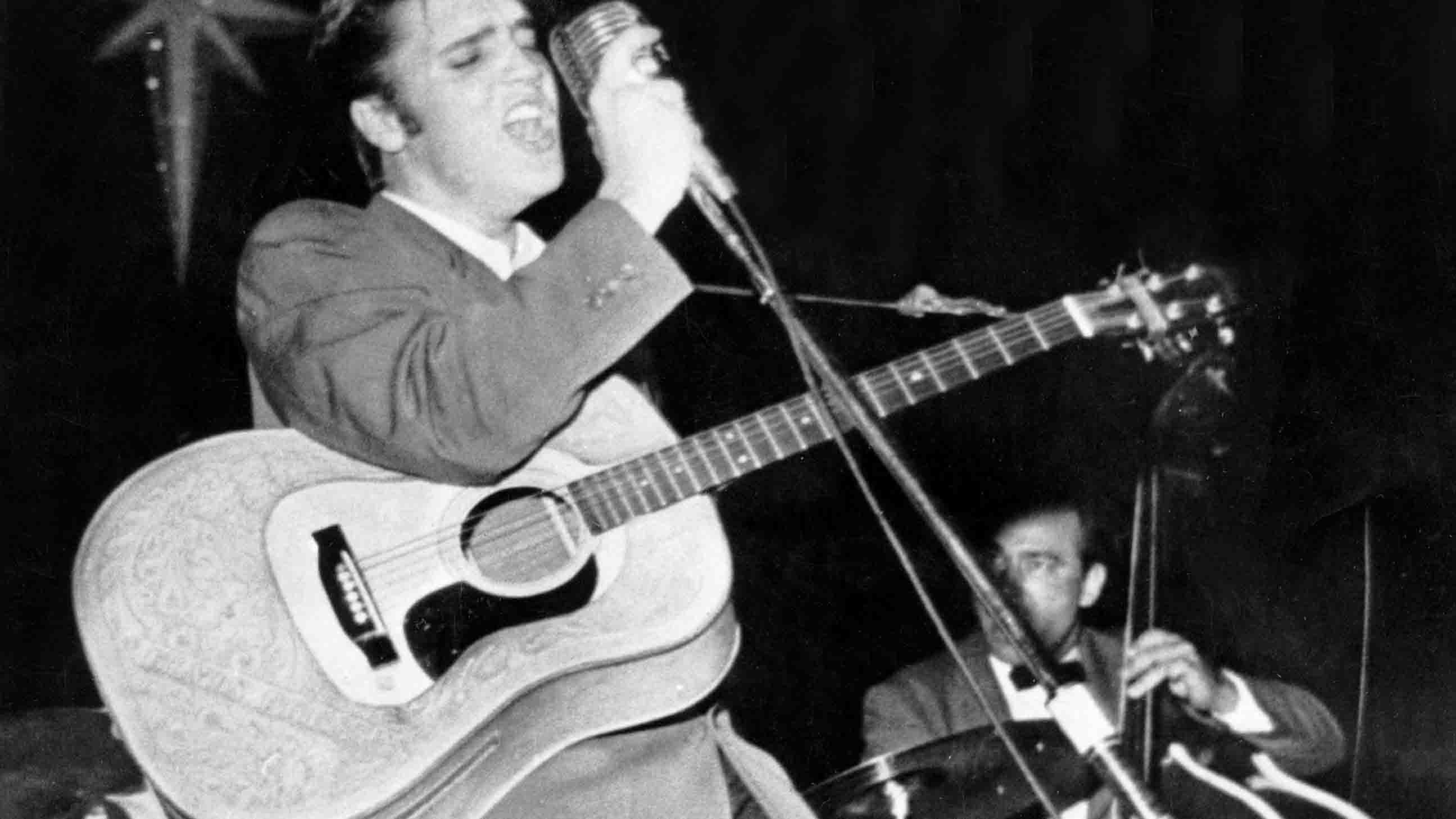
Bill Black
Rock and roll would be in a sorry state if Elvis had never come along, and the arrival of the king was, in no small part, helped along by his bass player Bill Black.
The instantly recognisable bass sound from those early classic Elvis records - That’s Alright, Hound Dog, Heartbreak Hotel and more - was all Bill, a born performer with a comedic streak and an ear for a hell of a bassline.
He didn’t play for Elvis at all past the late-’50s, but by then he’d already helped change the face of rock and roll and helped usher in the electric bass as an early proponent of the Fender Precision.
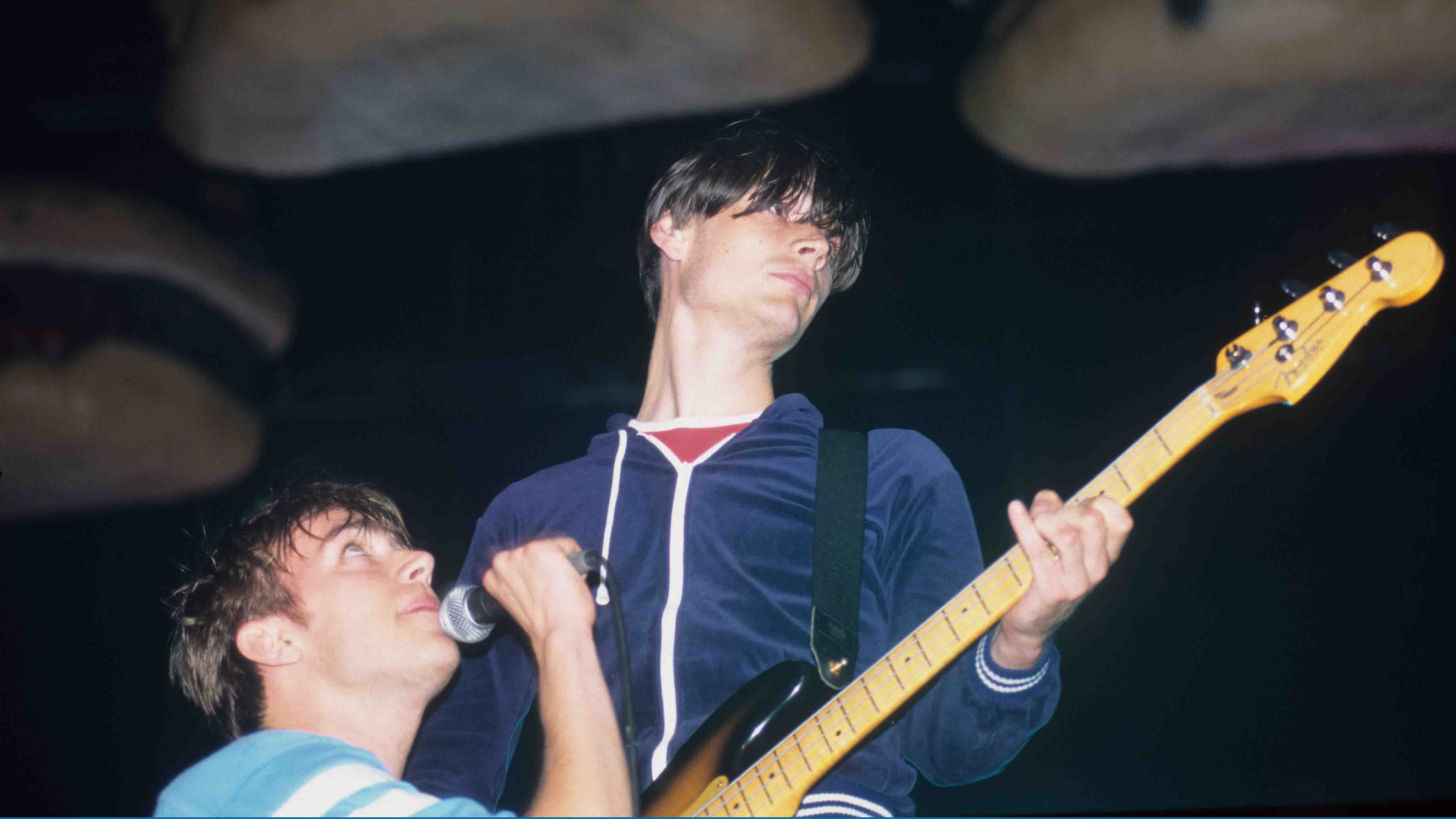
Alex James
Cigarette in mouth, bass slung low, busting out a groove as if it’s nothing - that’s Alex James, bassist in one of the best British bands of the past 30 years, and for our money, an overlooked four-string hero of the modern age.
Okay, so nowadays he’s more likely to be found making cheese on his farm, but in his heyday he was up there with the best of them. From the indie-pop perfection of Girls And Boys through to the heavier-than-hell fuzz-fest of Song 2, James provided the blueprint for the Lesser Spotted Indie bassist, a breed that is becoming increasingly rare these days.
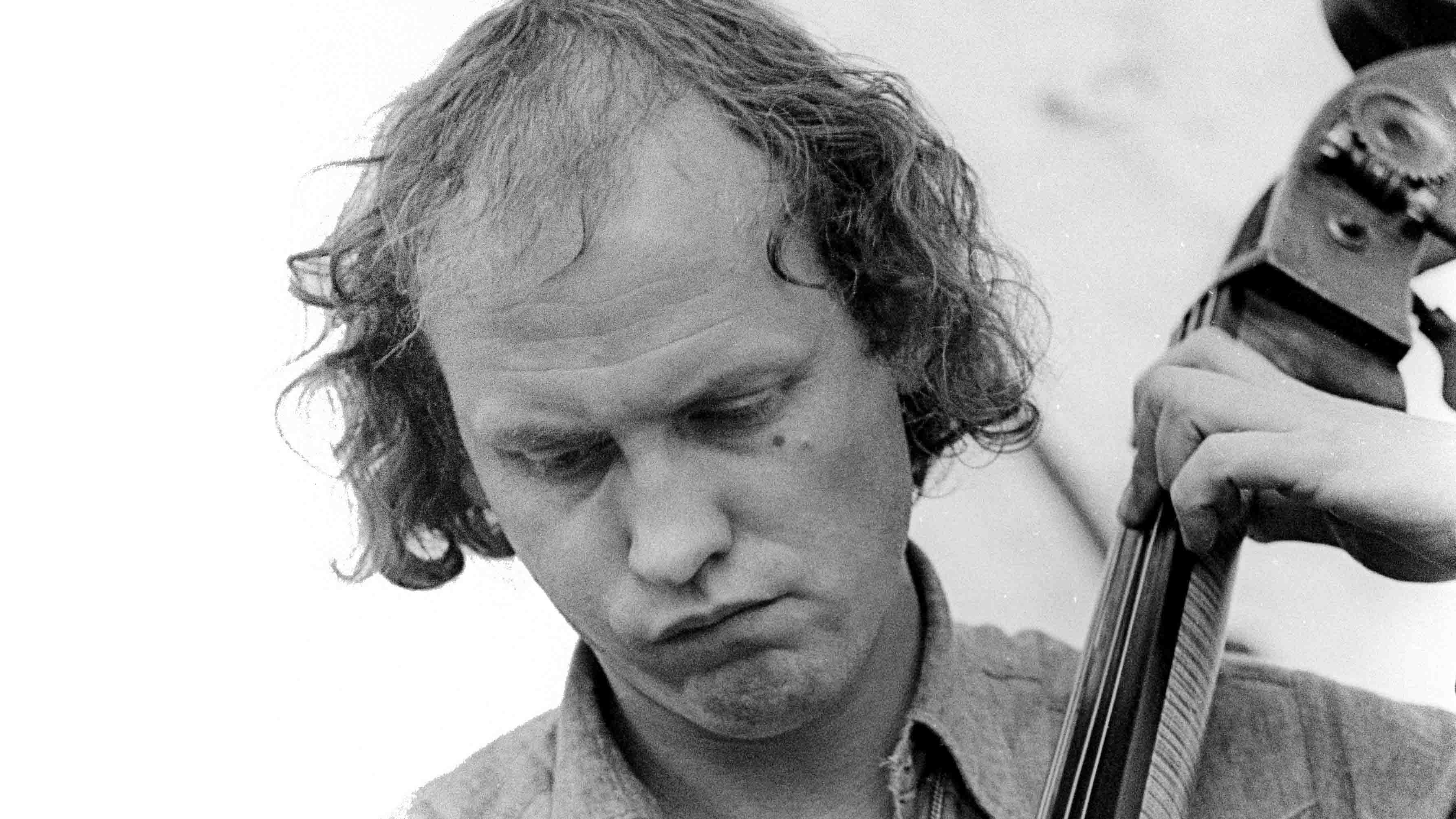
Danny Thompson
It is a truth universally acknowledged that folk musicians are always bigger maniacs than rockers, and so it was with Danny Thompson and John Martyn, the terrible twosome of the ’70s folk scene.
Sublime on stage, Thompson’s expressive, jazzy double bass provided the perfect counterpoint to Martyn’s emotive, delay-driven acoustic mastery, creating a double act for the ages. Offstage, they fought like brothers, drank like devils, and wrote themselves into legend.
Thompson went on to play with the likes of Richard Thompson and is, for our money, one of the most criminally underrated bass players in British musical history.
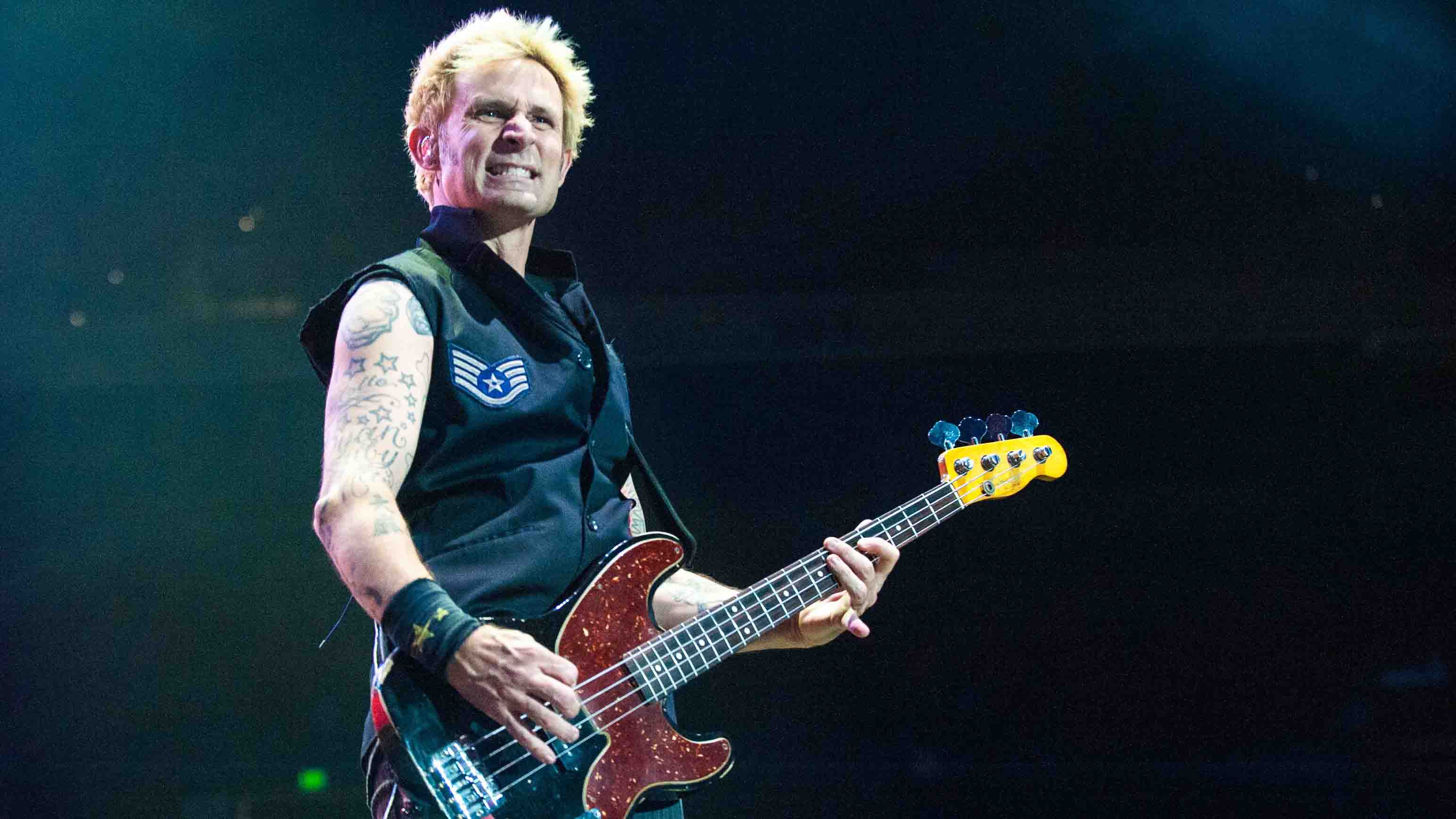
Mike Dirnt
Go ahead, write a catchy bassline. Easy? Well, no, not really, but you’ve probably got something. Now try and fit that into a two-and-a-half-minute pop song. Yeah. Not easy. Mike Dirnt, Green Day’s long-time bassmeister, has a knack for basslines that somehow soak into the brain, staying there - in some cases - for decades.
He can rock, he can slink, and he can hold a three-piece together better than almost anyone else in the game. You don’t get to play bass in one of the biggest bands on the planet without having a pretty serious A-game, and Dirnt can most definitely bring it.
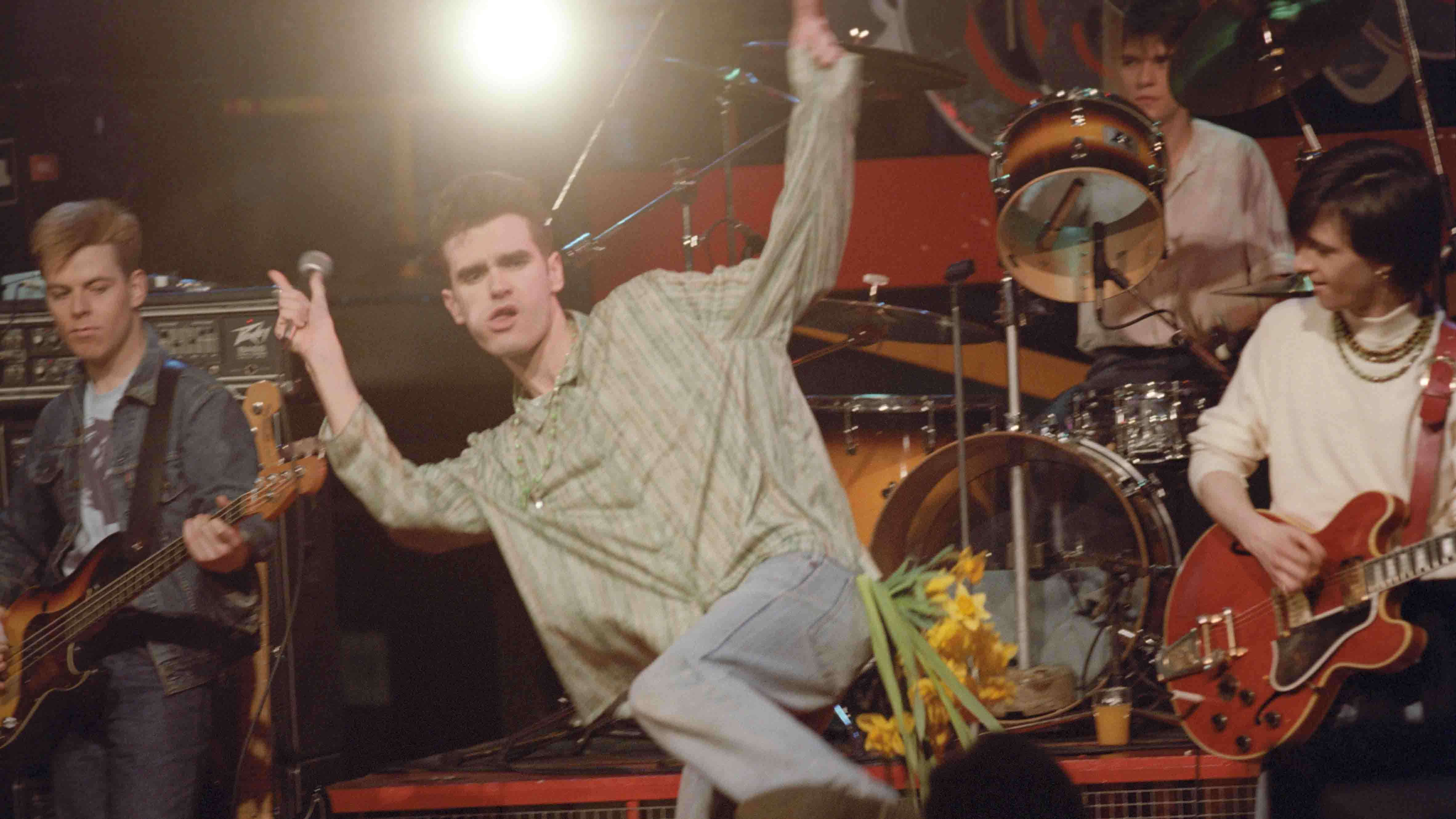
Andy Rourke
The Smiths were the ultimate indie band, so it’s only fitting that they had the ultimate indie bassist. Andy Rourke’s playing is both sophisticated and subtle at the same time, and the perfect hand in glove to Johnny Marr’s elaborate guitar work.
You would think that a band featuring a singer fond of wearing cardigans and hearing aids wouldn’t have much of an impact on the dancefloor, but thanks to Rourke, The Smiths really, really do. A rolling, driving indie-pop genius.
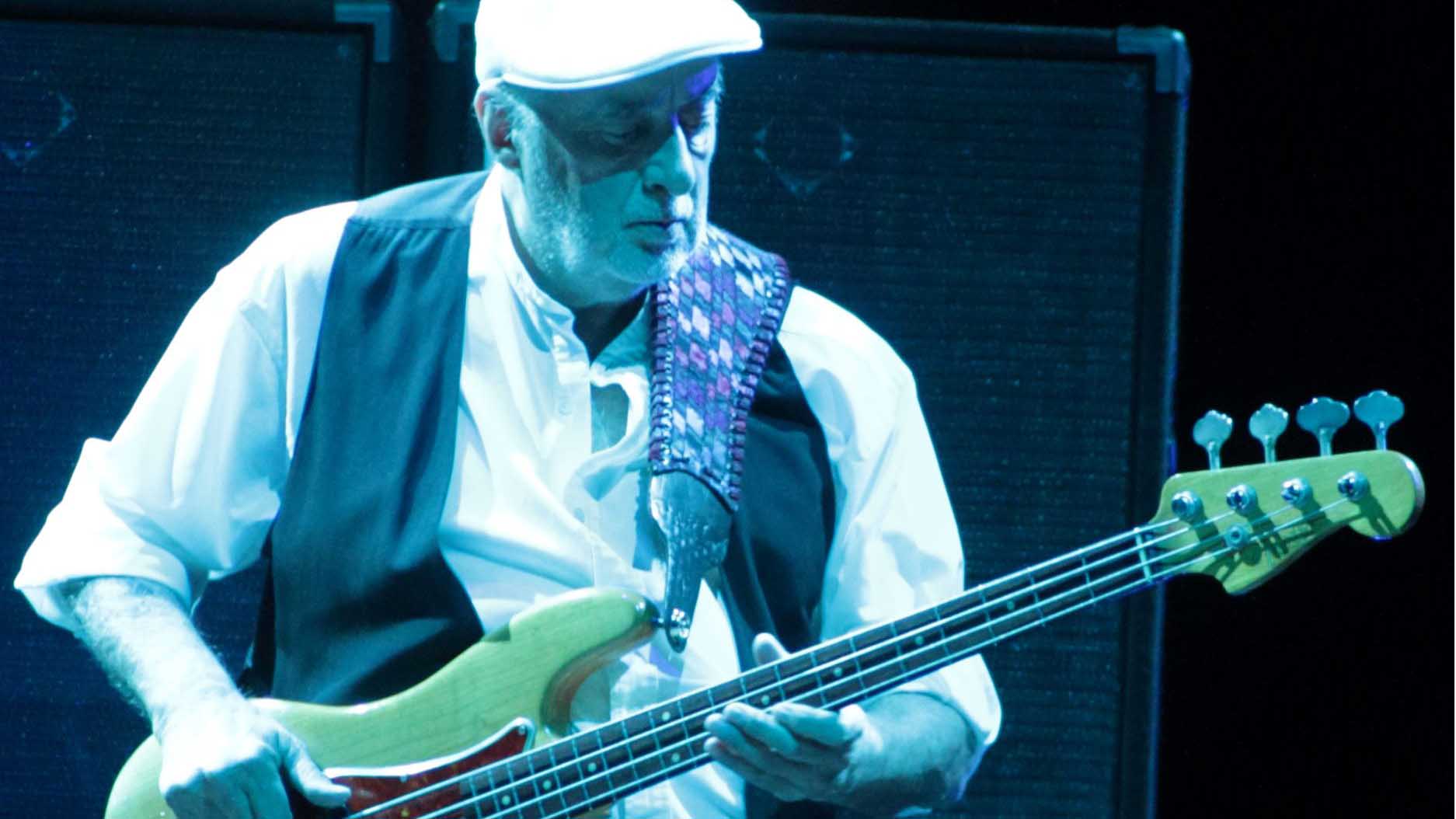
John McVie
There is a reason that Fleetwood Mac were named after their drummer and their bass player - rhythm sections don’t come any better than this.
Linked by a near-supernatural understanding of each other, Mick Fleetwood and John McVie emerged from the British blues boom of the ’60s as an untouchable team, raw and rocking yet tender and funky in all the right places.
McVie would write some of the all-time great bass lines in the ’70s, and his inimitable sense of song helped transform Fleetwood Mac into the pop-rock juggernaut of legend. A true titan of the game.

Phil Lynott
Almost anyone can bang out a few chords on the guitar and wail over the top, but singing bass players are an altogether rarer beast. That’s because it’s damn hard, frankly. And yet Phil Lynott, swashbuckling frontman extraordinaire, made it look easy.
Thin Lizzy remain one of the greatest rock bands to ever don leather trousers, and Lynott was the lynchpin. He looked great, he sounded even better, and he almost casually laid down some of the hardest-rocking bass lines ever committed to tape.
An all-riffing, all-rocking monster of a man, and the gold standard of bass-playing frontman.
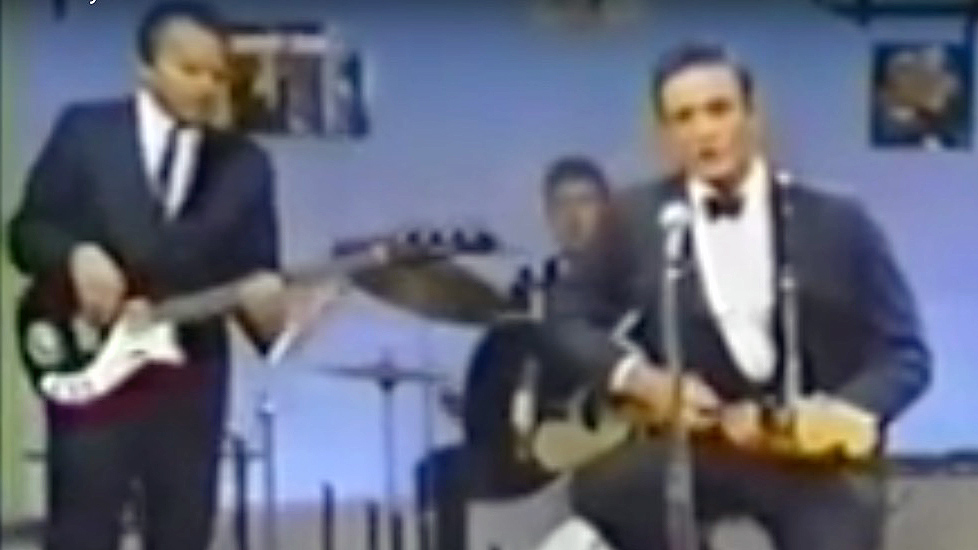
Marshall Grant
Never underestimate the power of simplicity. With his trusty upright bass in hand, former mechanic Marshall Grant revolutionised country music, and laid the template for early rock ’n’ roll bassists in the process.
Without Grant, Johnny Cash would have lacked a vital third of his distinctive sound, and the world would have been robbed of a wonder. Arguably one of the finest exponents of the ‘right note at the right time and nothing else’ school of bass playing.
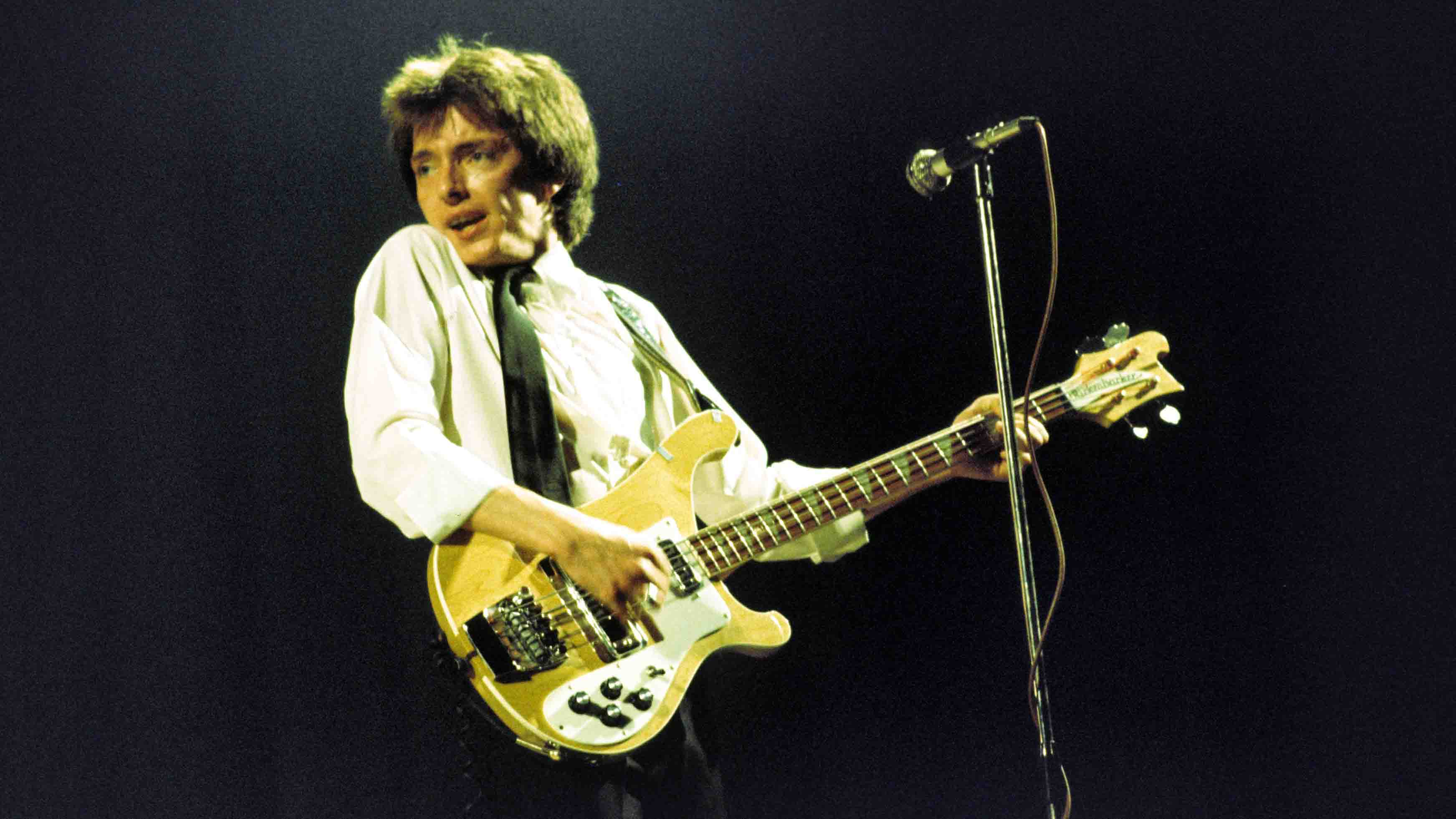
Bruce Foxton
Probably one of the most proficient musicians of the booming British scene of the late ’70s, Bruce Foxton had it all: chops to die for, stage presence to burn, and a tone that could topple buildings.
Taking his cues from Motown and the cream of ’60s pop, Foxton and his trusty Rickenbacker were the foundation upon which The Jam were built, and he deserves his place at the top table of bass players. The punk Paul McCartney.
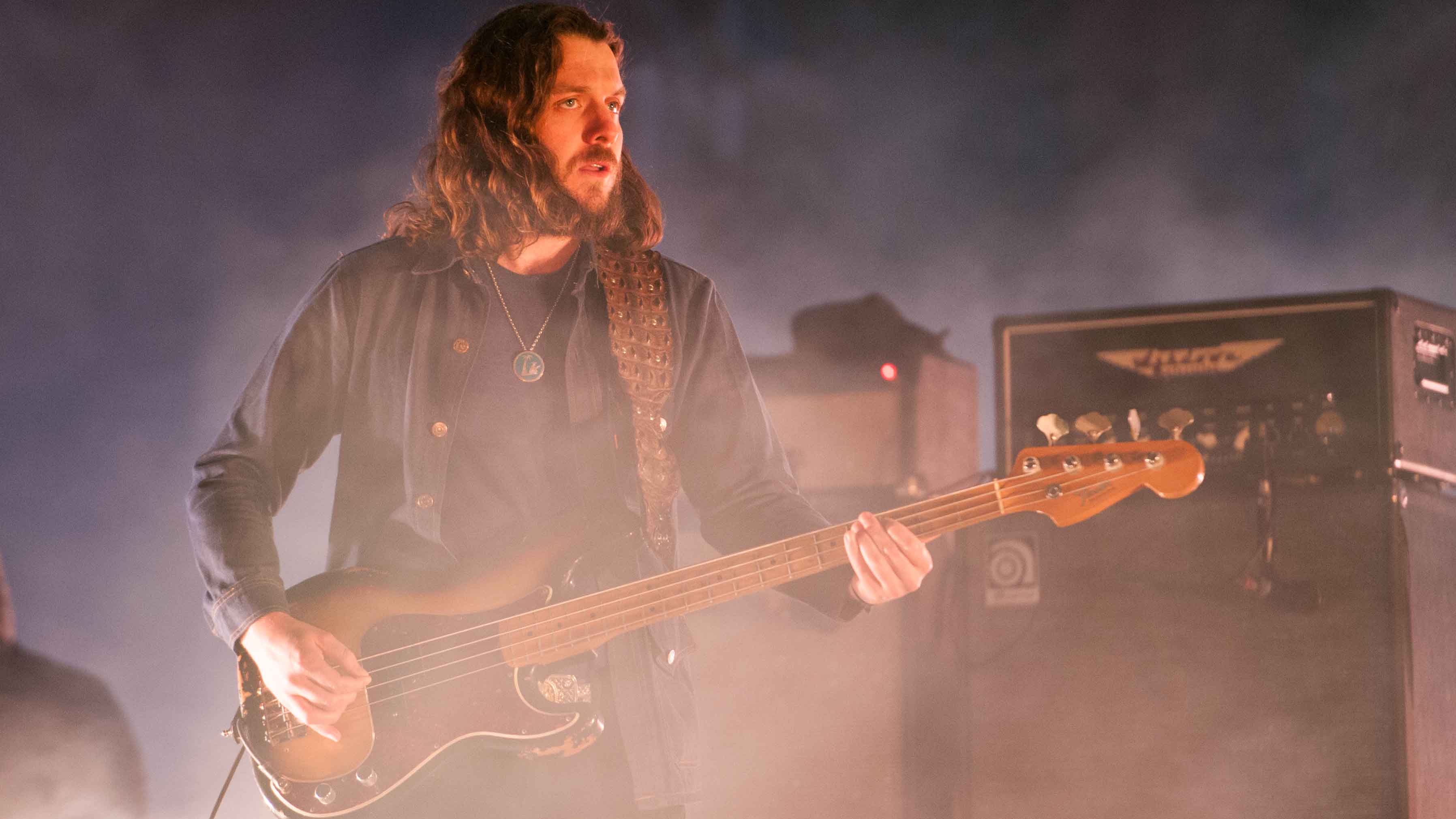
Nick O’Malley
The Arctic Monkeys have evolved over the years, from Sheffield back-room indie scrappers all the way to arena-packing LA-based lotharios, with a sound that’s part hip-hop, part classic rock, and all about the low-end.
Nick O’Malley keeps himself out of the way, letting Alex Turner do his thing up front, but it’s his rock-steady lines and room-shaking rumble that keeps things lean and funky. He only joined the band on album two, but he’s since proved an invaluable addition, from the creeping menace of Crying Lightning through to the late-night strut of Why’d You Only Call Me When You’re High?
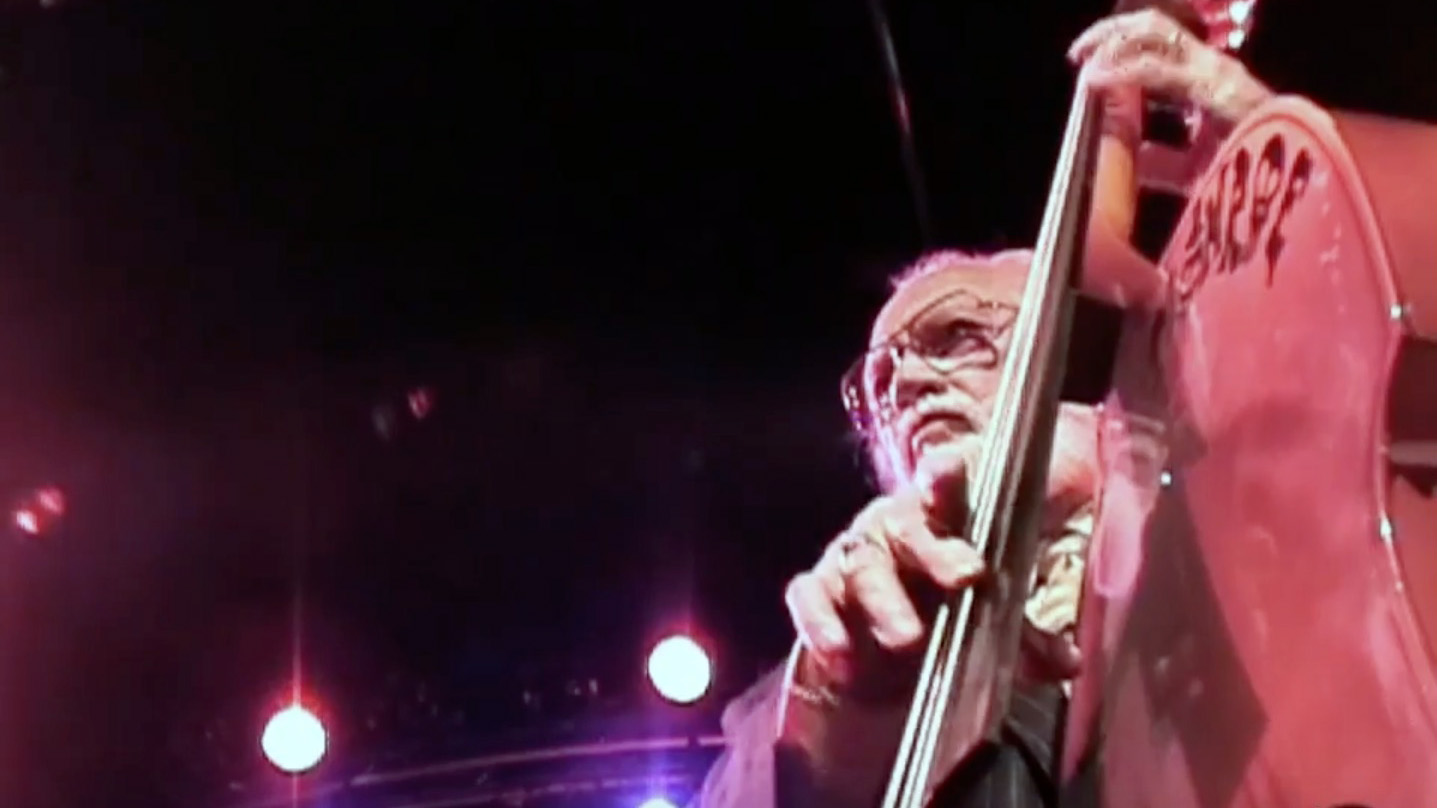
Bob Moore
Some session guys just can’t seem to stop working, and Nashville legend Bob Moore is probably the quintessential non-stop bass player.
Kicking off his career when he was just a teenager, Moore went on to work with… well, everyone. Icons like Elvis, Johnny Cash, Bob Dylan, Roy Orbison, Willie Nelson, Jerry Lee Lewis - Moore’s credits are a who’s who of rock and roll royalty.
He played on literally thousands of records, and is arguably one of the most recorded musicians of all time. Impressive.
